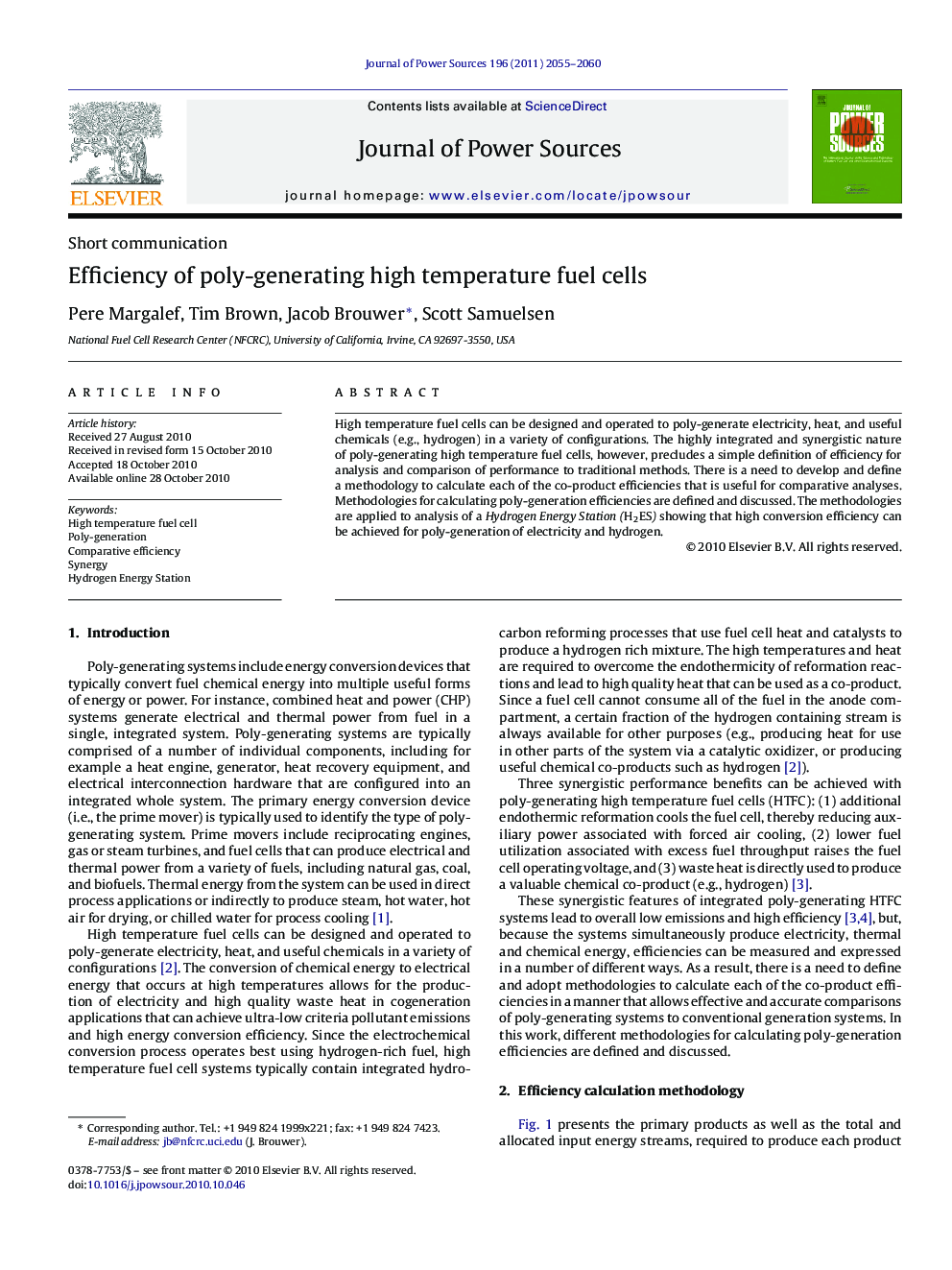| Article ID | Journal | Published Year | Pages | File Type |
|---|---|---|---|---|
| 1288868 | Journal of Power Sources | 2011 | 6 Pages |
High temperature fuel cells can be designed and operated to poly-generate electricity, heat, and useful chemicals (e.g., hydrogen) in a variety of configurations. The highly integrated and synergistic nature of poly-generating high temperature fuel cells, however, precludes a simple definition of efficiency for analysis and comparison of performance to traditional methods. There is a need to develop and define a methodology to calculate each of the co-product efficiencies that is useful for comparative analyses. Methodologies for calculating poly-generation efficiencies are defined and discussed. The methodologies are applied to analysis of a Hydrogen Energy Station (H2ES) showing that high conversion efficiency can be achieved for poly-generation of electricity and hydrogen.
Research highlights▶ The highly integrated and synergistic nature of poly-generating high temperature fuel cells precludes a simple definition of efficiency for analysis and comparison of performance to traditional methods. ▶ The current paper develops and defines three methodologies to calculate each of the co-product efficiencies that are useful for comparative analyses. ▶ Each of the methodologies are applied to analysis of an example solid oxide fuel cell system called a Hydrogen Energy Station (H2ES) showing that high conversion efficiency can be achieved for poly-generation of electricity and hydrogen.
